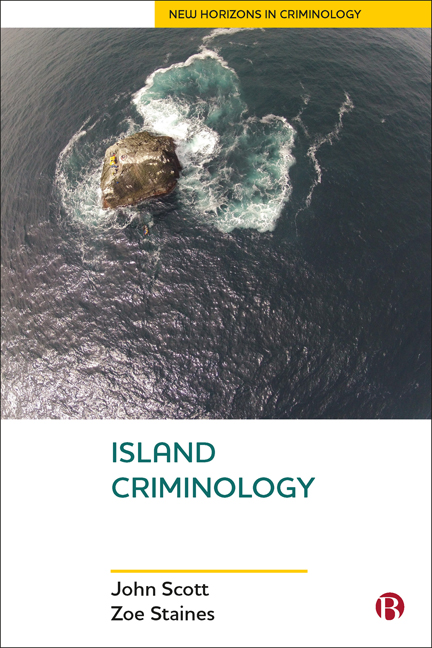5 - Integration
Published online by Cambridge University Press: 17 January 2024
Summary
… we are all islands – in a common sea.
(Anne Morrow Lindbergh, 1955)Although much has been written about rural policing, accounts of policing islands in the Global North are rare (see Souhami, 2020). One exception is a light-hearted account of policing the Isles of Scilly (population 2,200) off the south-west coast of England. The longest serving police officer on the Scilly Islands presented them as sleepy, crime-free backwaters, with crime mostly consisting of bicycle thefts and people stealing petrol from cars. What might have been a bust on a ‘drug smuggling ring’ proved disappointing when the 2 kg of cocaine turned out to be a bag of mozzarella cheese (Taylor, 2016). Research in the Global North has presented policing in remote and small-scale societies as community focused, owing to low crime rates in such societies. But is there actually less crime or less reportage of crimes such as domestic violence, which recent research has found to be endemic in all social contexts? Is there really less violence in the Scilly Isles than on the mainland, or is crime reportage a response of how police do their work and is how police do their work influenced by specific environments and social networks?
In this chapter, we examine the issue of integration in relation to policing in the Pacific, where most research on policing islands has been conducted. The Pacific Islands are loosely sub-divided into cultural and geographic groupings of Polynesia, Micronesia, and Melanesia. Most Pacific Island communities (PICs) are microstates with small, geographically dispersed populations. Approximately 90 per cent of the region's population of approximately 11 million people live in four independent Melanesian states, with the largest in size and population (8 million) being Papua New Guinea, and the others including Fiji, the Solomon Islands, and Vanuatu (Watson & Dinnen, 2020). These nations are often spread over wide geographic areas of small islands, contrasting the influential neighbouring countries of Australia and New Zealand. PICs also have a relatively high police-to-population ratio (Newton, 1998). All the countries in the region may be classified as ‘developing nations’ with limited public sector resources, lack of infrastructure, and relatively poor communications (Newton, 1998).
- Type
- Chapter
- Information
- Island Criminology , pp. 80 - 97Publisher: Bristol University PressPrint publication year: 2023

